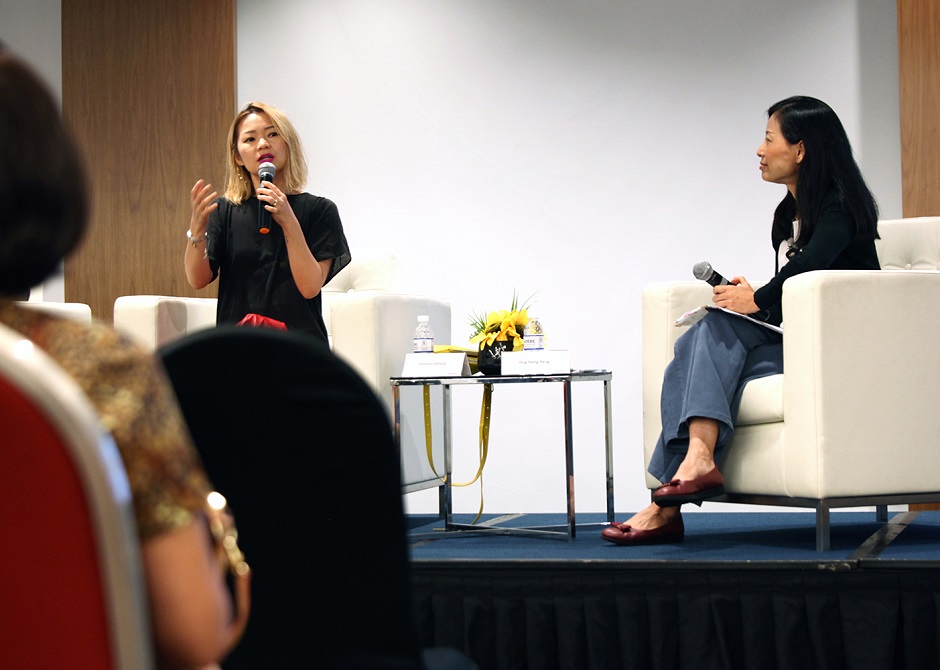Ginette Chittick will try everything once.
In her teens, a friend invited her to play bass guitar in an all-girl rock band. She had no idea how to, but her friend assured her it would be easy, so she dived in.
After years in Singapore’s rock music scene, she set up a fashion label with looks inspired by her favourite bands. Neither she nor her two business partners were trained in fashion—they couldn’t draw or work with fabrics. But they had a clear vision and pressed ahead, learning along the way.
Their efforts caught the eye of the Dean of Design at LASALLE, where Ginette was teaching design communication. She suggested that Ginette head the school’s Diploma in Fashion instead, since she had practical experience.
Ginette said – you guessed it – yes.
“I often find I end up doing something because I did something else related before,” she says. It’s worked for her. From bass-playing to t-shirt printing to deejaying in clubs, the mother of one has always been open to meeting people and accumulating new experiences. Sometimes, it ends up being a hobby. But in the case of fashion, it has become her life.
She takes particular pride in successfully making the transition from web and visual design – the area she studied and initially taught. The lesson she distils for her students: “You may not get the job that you want, or you may not be interested in the job you’re studying for. But the good news is, you can move sideways in the industry.”
So even as she teaches fashion, she emphasises the transferable skills that will give her students the most options within the creative industry, such as working with surfaces, colour, and composition. But these are just the technical aspects. Equally important to her are:
1. Empathy
“Design is all about empathy,” says Ginette, pointing out that people working in all creative fields need to bear the consumer’s needs in mind. She credits her experiences in Singapore’s rock music scene for sensitising her to this: “It gave me the chance to hang out with people of other backgrounds, and that helped me a lot in understanding them.”
2. Teamwork
Having dabbled in music, fashion, and visuals, Ginette knows that none of them are solo activities. That’s why she spares no effort in explaining to her students why group assignments are necessary and important, even if they are not the most popular component of her classes.
Ginette feels teamwork is such a useful life skill that she finds ways to get her three-year-old daughter started on it. “It all starts with letting your child play with others, and play with them well,” she says. And part of this is being able to speak up and resolve conflicts. Naturally, she’ll intervene if she sees older kids shoving her daughter at the playground. “But when a child around her age does that, I try to let my daughter work out the issue.”
3. Understanding how you learn
Looking back on her journey, Ginette feels her gung-ho, try-anything approach to life worked for her because she is “a maker”. “I think there are two types of people,” she says. “Those who learn through books, and those who learn through making.” Clearly in the latter camp, she continues to feed her appetite for learning through new ventures, such as deejaying and weaving.
As a mother, she’s watching out for signs of how her daughter learns, and she’d be happy either way. She’s aware that other parents may be worried that their children spend too much time playing computer games or watching YouTube videos. Her suggestion to them: don’t panic. They may be ‘makers’. Show them a YouTube video on how to make their own computer games, and see what happens. “Magic,” she says, with a twinkle in her eye.






